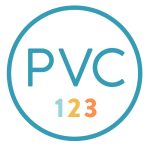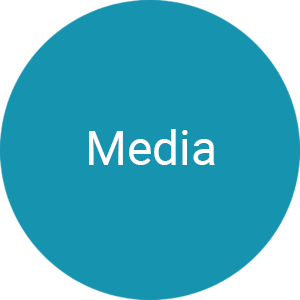Government
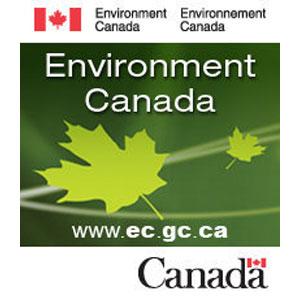 The industry can only be successful when it works in concert with all levels of government. The Vinyl Institute of Canada members have had a long-standing, respectful, and successful relationship with various ministries; working to ensure that the vinyl manufacturing sector and government benchmarks are synchronized, and with a view to promoting our industry’s continued growth and contributions to Canada’s economy and sustainability goals.
The industry can only be successful when it works in concert with all levels of government. The Vinyl Institute of Canada members have had a long-standing, respectful, and successful relationship with various ministries; working to ensure that the vinyl manufacturing sector and government benchmarks are synchronized, and with a view to promoting our industry’s continued growth and contributions to Canada’s economy and sustainability goals.
Our Chemicals Management Task Force (CMP), under the Canadian Environmental Protection Act (CEPA, 1999), is comprised of our most senior regulatory affairs specialists among our member’s organizations, all of whom work in concert with Environment Canada and Health Canada to ensure our industry is meeting compliance requirements in the manufacturing sector.
Our members also participate on and with the Environmental Performance Agreement (EPA) on the management of Tin Stabilizer, led by Environment Canada’s Plastics Division, which is an agreement that seeks to ensure that Tin Stabilizer, a substance used in the production of rigid vinyl, will not leach into the aquatic environment. Our vinyl manufacturing membership continues to produce stellar results in meeting the requirements of this program.
We are also pleased to announce that the VIC and Environment and Climate Change Canada have just renewed the Environmental Performance Agreement on Tin Stabilizer Management for the third, five-year period, 2020-2025. For more information on this program, please follow this link https://www.canada.ca/en/environment-climate-change/services/environmental-performance-agreements/list/tin-stabilizers-vinyl-industry-overview.html signed by the Vinyl Institute of Canada and Environment and Climate Change Canada.
For more information, please contact info@vinylinstituteofcanada.com
There can be no true success without caring for our environment, and it’s current and future needs. The Canadian Vinyl industry works with government to ensure that environmental protection standards are met, and are a priority. Follow this link to learn how the vinyl industry has partnered with the federal government to protect the environment and keep our most important human resource, water, and our aquatic environment safe – Environmental Performance Agreement on Tin Stabilizer in the Vinyl Industry
The Vinyl Institute of Canada and its members are known and respected for their commitment to innovation, and as such, are continually looking for new technologies to increase sustainability, and to the on-going protection of our environment.
In August 2019, the VIC brought a team of industry experts to meet with Environment and Climate Change Canada’s Plastics Division in Gatineau, Quebec, to present our plan for a Medical PVC Recycling Pilot program. That meeting set in motion the creation of PVC 123, specifically the recycling of oxygen masks, oxygen mask tubing, and intravenous fluid bags, the bulk of which are used in Operating Rooms in hospitals around the world, and where OR’s generate approximately 30% of all hospital waste.
On February 2020, The Vinyl Institute of Canada and Environment and Climate Change Canada entered into a formal and voluntary partnership on this recycling initiative, with a view to designing a hospital collection infrastructure which would allow any size hospital to set up their own recycling program in a seamless fashion, and have minimal to no impact on existing work responsibilities for health care staff.
Dr. Ali Abbass of St. Joseph’s Unity Health Centre in Toronto, started a medical device recycling program several years ago with Vinyl Institute of Canada member, Norwich Plastics, one of North America’s most advanced recyclers of flexible PVC, and which many life-saving devices are made from.
Our pilot program ended in March of 2021, and we are happy to report that we are nearing thirty (30) participating hospitals. Although the pilot has ended, please contact us if you wish to participate in the program at info@vinylinstituteofcanada.com.
L’Institut du vinyle du Canada et ses membres sont connus et respectés pour leur engagement envers l’innovation et, à ce titre, sont continuellement à la recherche de nouvelles technologies pour accroître la durabilité et la protection continue de notre environnement.
En août 2019, le CIV a invité une équipe d’experts de l’industrie à rencontrer la Division des plastiques d’Environnement et Changement climatique Canada à Gatineau, au Québec, pour présenter notre plan de programme pilote de recyclage du PVC médical. Cette réunion a déclenché la création du PVC 123, en particulier le recyclage des masques à oxygène, des tubes de masques à oxygène et des sacs de liquide intraveineux, dont la majeure partie est utilisée dans les salles d’opération des hôpitaux du monde entier, et où les salles d’opération génèrent environ 30% de tous les déchets hospitaliers.
En février 2020, l’Institut du vinyle du Canada et Environnement et Changement climatique Canada ont conclu un partenariat formel et volontaire sur cette initiative de recyclage, en vue de concevoir une infrastructure de collecte hospitalière qui permettrait aux hôpitaux de toute taille de mettre en place leur propre programme de recyclage en de façon homogène et ont un impact minime ou nul sur les responsabilités professionnelles existantes du personnel de santé.
Le Dr Ali Abbass du St.Joseph’s Unity Health Centre à Toronto, a lancé un programme de recyclage des dispositifs médicaux il y a plusieurs années avec le membre de l’Institut du vinyle du Canada, Norwich Plastics, l’un des recycleurs de PVC flexible les plus avancés d’Amérique du Nord, et dont beaucoup peuvent sauver des vies. les appareils sont fabriqués à partir de.
The Vinyl industry is recognized as one of the most innovative manufacturing sectors in the world. The reason being is due to vinyl’s versatility and durability. As a simple, yet sophisticated polymer, vinyl can be molded into both flexible and rigid products from building and constructions materials, to hospital devices, to underground water main infrastructure. Conversely, that same versatility can allow many vinyl products to be reverse engineered and recycled into brand new products.
In addition to our “PVC 123” medical recycling program, the VIC is now making plans to conducting research into recycling Vinyl window profiles. With one of the longest life cycles in the window industry, vinyl windows will perform for 30 to 40 years before requiring replacement. Whether through home renovations or replacement due to age, many vinyl windows first installed over forty years ago are expected to be replaced in the coming years.
The Vinyl industry is working hard by drawing on the expertise of leading vinyl window manufacturers, compounders, fabricator, and installers in North America and the UK to define the necessary recycling infrastructure which will increase the sustainability profile of vinyl windows. Welcome to WinFinity!
Please check back here from time to time for updates as we develop this initiative.
For more information, please email us at info@vinylinstituteofcanada.com
Part of being a successful in life or in business is predicated upon future planning. The Vinyl Institute of Canada is always working on new innovations, and are committed to ensuring that as we continue to innovate, that incorporating societal benefits will be an integral part of our planning processes.
Please be sure to visit this page from time to time to learn about where we are headed as an industry today, and in the future!
North American
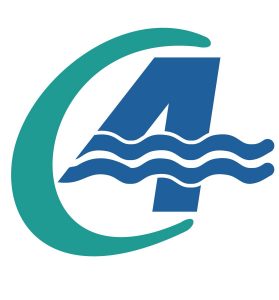
The Canadian Chlorine Chemistry Council (C4) is an alliance of associations and companies devoted to the responsible use of chlorine chemistry.
C4’s vision is the responsible and sustainable use of chlorine chemistry resulting in societal benefit recognized by the public.
C4’s Mission is to facilitate dialogue and promote coordinated action in Canada amongst key stakeholders in order that a balanced view of chlorine chemistry may enable society to make informed, science-based decisions on issues involving chlorine chemistry.
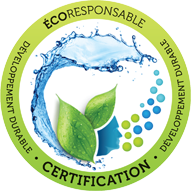 Supporting leaders in the implementation of sustainable development in their business and for those upstream or downstream companies of the value chain to ensure their leadership in their respective areas and thus make sustainable development a lever for business development.
Supporting leaders in the implementation of sustainable development in their business and for those upstream or downstream companies of the value chain to ensure their leadership in their respective areas and thus make sustainable development a lever for business development.
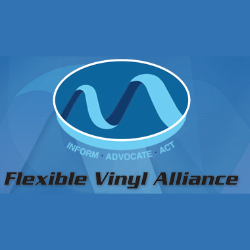 The FVA is a coalition of trade organizations, materials suppliers, compounders, formulators, molders and fabricators, who are currently concerned with regulatory and legislative attempts to debate, limit or “de-select” flexible vinyl products in commerce. The FVA provides messaging and advocacy on the proven safety, economy and utility of flexible PVC, a material used in a wide range of health care, recreational, military, automotive, building, flooring, construction and packaging applications.
The FVA is a coalition of trade organizations, materials suppliers, compounders, formulators, molders and fabricators, who are currently concerned with regulatory and legislative attempts to debate, limit or “de-select” flexible vinyl products in commerce. The FVA provides messaging and advocacy on the proven safety, economy and utility of flexible PVC, a material used in a wide range of health care, recreational, military, automotive, building, flooring, construction and packaging applications.
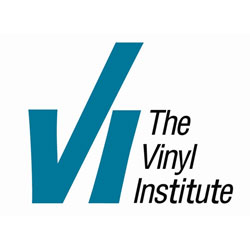 The Vinyl Institute, founded in 1982, is a U.S. trade organization representing the leading manufacturers of vinyl, vinyl chloride monomer, and vinyl additives and modifiers. The Vinyl Institute serves as the voice for the vinyl industry, engaging industry stakeholders in shaping the future of the vinyl industry. The U.S. vinyl industry encompasses nearly 3,000 vinyl manufacturing facilities, more than 350,000 employees and overall economic value of $54B.
The Vinyl Institute, founded in 1982, is a U.S. trade organization representing the leading manufacturers of vinyl, vinyl chloride monomer, and vinyl additives and modifiers. The Vinyl Institute serves as the voice for the vinyl industry, engaging industry stakeholders in shaping the future of the vinyl industry. The U.S. vinyl industry encompasses nearly 3,000 vinyl manufacturing facilities, more than 350,000 employees and overall economic value of $54B.

The Vinyl Institute of Canada is strongly bonded to vinyl associations all around the world. Our alignment with the Vinyl Institute in Washington D.C., forms a powerful voice for the North American industry, while our Vinyl Institute of Canada President, Aiñe Curran, is also the Vice-Chair of The Global Vinyl Council, and can assist you with your industry goals, be they local, across the continent, or world-wide.
The alignment between the Vinyl Institute in Washington, D.C., and the Vinyl Institute of Canada has allowed both associations to work diligently to deliver a seamless service between our geographical borders and can provide our respective members with reciprocal benefits. Please take a moment to visit the Vinyl Institute’s web site at www.vinylinfo.org, and meet their dynamic team.
Joining the Vinyl Institute of Canada allows you to use the VIC logo on any materials that would help to propel your company’s growth, stay ahead of industry news, and demonstrate to prospective clients that you are a member of a facts-based, credible and progressive Canadian association, with esteemed relationships in the US and around the world.
When you become a member of the Vinyl Institute of Canada you become a member of a global vinyl movement!
 The VBSC was created to further advance the efforts of the vinyl industry as it addresses sustainability and related advocacy, communication, and technical issues in North America. Members of the VBSC work together to develop and implement best practices and innovation leading to continuous improvement throughout the industry while promoting these achievements to key stakeholders.
The VBSC was created to further advance the efforts of the vinyl industry as it addresses sustainability and related advocacy, communication, and technical issues in North America. Members of the VBSC work together to develop and implement best practices and innovation leading to continuous improvement throughout the industry while promoting these achievements to key stakeholders.
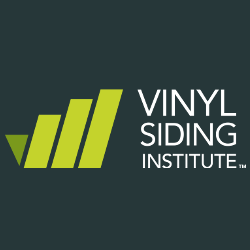 The Vinyl Siding Institute, Inc. (VSI) is the trade association for manufacturers of vinyl and other polymeric siding and suppliers to the industry.
The Vinyl Siding Institute, Inc. (VSI) is the trade association for manufacturers of vinyl and other polymeric siding and suppliers to the industry.
The purpose of VSI is to further the development and growth of the vinyl siding industry by:
- Maintaining and expanding markets for vinyl and other polymeric sidings.
- Addressing regulatory issues, including material restrictions, monitoring of building codes, and the education of building code developers and regulators.
- Helping develop material, product and performance standards by working through standards-making organizations and code bodies.
- Sponsoring certification programs that improve the quality of siding and its installation.
- Providing a forum for issues of interest to the vinyl siding industry.
- Using VSI resources to share information with the industry and its customers on the benefits of vinyl and other polymeric siding.
- Engaging in product stewardship and outreach activities to enhance the image of the industry and its products.
Global
![]()
Date of Establishment: May 26, 1998
| Address: | 8th Floor, Rokko Building, 1-4-1 Shinkawa, Chuo-ku, Tokyo, Japan |
| Telephone Number: 81-3-3297-5601 | |
| Facsimile Number: 81-3-3297-5783 |
Objective
| (1) | Promote correct understanding of PVC through survey and research on the environment and safety related issues surrounding the PVC industry |
| (2) | Contribution to the development of the PVC industry through research on the production, technology, distribution and consumption facets of the industry |
Activities: VEC shall perform the following activities to achieve the below:
| (1) | Survey and research on the environment, security and safety related issues within the PVC industry, and promote countermeasures. |
| (2) | Survey and research on PVC recycling related issues, and promote countermeasures. |
| (3) | Propagation and education for the correct understanding of PVC. |
| (4) | Survey and research on production, technology, distribution and consumption of PVC. |
| (5) | Interaction and cooperation with other domestic or foreign PVC related organizations. |
| (6) | Other activities for attainment of the above mentioned objective |
For more information http://www.vec.gr.jp/english

Members of the vinyl industry from ASEAN countries including Indonesia, Malaysia, the Philippines, Singapore, Thailand and Vietnam today committed to the responsible and sustainable development of the industry across the region by signing a charter to establish the ASEAN Vinyl Council (AVC) advisory body.
The newly established AVC, aims
- To make AVC the coordination platform for the Vinyl Industry in ASEAN, with stakeholders acting responsibly towards society and the environment and committing to adhere to best practices.
- To facilitate clear communications and understanding of Vinyl Industry issues to public, authorities and end users.
- To present PVC as a solution to challenges posed by global warming and climate change.
Benefits to the environment & community
The advisory body will also encourage future improvements, work with associated industry groups for a better understanding of environmental issues, share knowledge and best practices of innovative environmental control technologies and enhance communications with stakeholders and the general public.
For more information http://aseanvinyl.com
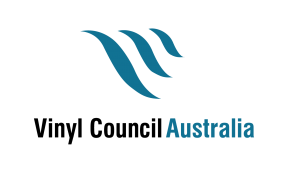
The Vinyl Council of Australia believes that vinyl products have a valuable role to play in a sustainable society.
The Council is a member-based organization established in June 1998. It acts as the peak organization representing the Australian PVC, or vinyl, value chain. Our members are drawn from across the supply chain of the vinyl industry in Australia, representing a wide range of products.
The Vinyl Council is working to advance the sustainability of the PVC industry in Australia through sharing information on, and engaging with stakeholders regarding the life cycle of PVC.
The Council advocates the responsible manufacture, use and disposal of PVC products. It aims to foster cooperation between member companies, governments and organizations to increase the understanding of the PVC life cycle.
The Council provides leadership to its members in Product Stewardship and best practice models to encourage industry advances and operation to the highest standard.
The Council provides members with a forum where they can seek information and support for the advancement of the industry.
For more information https://www.vinyl.org.au
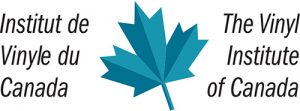
Propelling industry growth is what we are About at the Vinyl Institute of Canada! From growth, many benefits are produced.
The Vinyl Institute of Canada is the authoritative voice for vinyl from coast to coast, and our members have been hard at work since 1993 anticipating, monitoring and solving industry issues that potentially misinform the public.
The reason we exist is to identify and address issues and opportunities on behalf of the industry, making it possible for manufacturers of vinyl in all applications to serve the needs of commercial, industrial, and residential consumers.
As one of the most advanced and stable sectors of the plastics industry in Canada, the Vinyl Institute of Canada and its members continue to innovate, develop new and sustainable technologies, while meeting important compliance and regulatory benchmarks. These attributes not only allows our industry to grow, but similarly, affords our member organizations the opportunity to contribute to our country by way of job creation, community support, and continued economic growth.
Our board is comprised of 16 member organizations, all of whom are fully committed to ensuring our industry will continue to prosper and operate as proud and meaningful contributors to the future of Canada.
For more information https://vinylinstituteofcanada.com

VinylPlus is the renewed ten-year Voluntary Commitment of the European PVC industry. The programme establishes a long-term framework for the sustainable development of the industry by tackling a number of critical challenges, in the EU-28, Norway and Switzerland.
Building on the progress made by its predecessor Vinyl 2010, the overall aim of VinylPlus is to help the industry realise the following vision:
PVC is a preferred material in terms of quality, value and environmental safety. It helps others to reach their sustainability goals and is seen as a safe material providing convenience, comfort and high social value as well as having good sustainability credentials. This has been achieved by leadership and commitment from the industry, itself working with others in an open and honest way.”
The VinylPlus programme was developed bottom-up in industry workshops and through an open dialogue with all stakeholders, including NGOs, regulators, public representatives and users of PVC. Each of the five key challenges is based on The Natural Step System Conditions for a Sustainable Society. PVC is made from salt, oil and natural gas and is one of the most widely used plastics in the world.
VinylPlus is committed to the following working principles:
- Voluntary action–tackling the sustainability challenges of PVC in a proactive way.
- Measurable targets and deadlines– shared publically and reported on annually.
- Continuous improvement–accepting that the journey to sustainability requires constant evaluation and learning.
- Collaboration– working together within the industry to find solutions that no single player can implement, and reaching out to much broader stakeholder groups.
- Transparency– opening up, sharing and recognising the gap between where we are now and where we aim to be.
- Scientific rigour and research– making sure technologies, processes and materials are assessed according to strong and scientifically-based sustainability principles.
- Dialogue– creating more debate with those who have something to say about PVC, in a positive, receptive frame of mind.
- Responsibility– no one is going to secure a place for PVC in the sustainable future other than the industry itself.
- Seeking business prosperity– we need successful businesses along the value chain – that means making an acceptable return on investment, being competitive while pursuing a sustainable development.
- Priority to sustainability innovation– research, design and innovation should have no goal other than improving the sustainability potential of PVC, including its market competitiveness, and openly challenging components, materials and practices which do not make sense in terms of sustainable development.
For more information https://vinylplus.eu

The Vinyl Institute, founded in 1982, is a U.S. trade organization representing the leading manufacturers of vinyl, vinyl chloride monomer, and vinyl additives and modifiers. The Vinyl Institute serves as the voice for the vinyl industry, engaging industry stakeholders in shaping the future of the vinyl industry. The U.S. vinyl industry encompasses nearly 3,000 vinyl manufacturing facilities, more than 350,000 employees and the overall economic value of $54B.
Our Mission:
Together, we shape the future of the vinyl industry.
Our Vision:
Vinyl is the material of choice for diverse products that enhance the quality of life.
Our Value Premise:
VI leads collaborative thinking that promotes growth, innovation, and corporate stewardship across the vinyl value chain.
For more information https://www.vinylinfo.org


